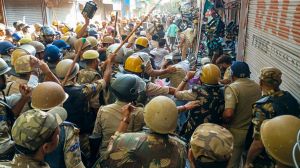Powell, Armitage to step down
Secretary of State Colin Powell and his deputy, Richard Armitage, have signalled to White House that they intend to step down even if Presid...

Secretary of State Colin Powell and his deputy, Richard Armitage, have signalled to White House that they intend to step down even if President Bush is re-elected, setting the stage for a reshaping of the administration’s national security team that has been unchanged through the September 2001 terrorist attacks, two wars and numerous other crises.
Armitage recently told National Security Adviser Condoleezza Rice that he and Powell will leave on January 21, 2005, the day after the next presidential inauguration, sources said. Powell has indicated that a commitment made to his wife, rather than any dismay at the administration’s foreign policy, is a key factor in his desire to limit his tenure to one presidential term.
Rice and Deputy Defence Secretary Paul Wolfowitz are the leading candidates to replace Powell. Rice appears to have an edge due to her closeness to the President, but it is unclear whether she would be interested in running the State Department’s vast bureaucracy. With 18 months left in Bush’s current term, officials said talk of a new foreign policy team is premature — particularly because Bush’s re-election is not assured.
The security lineup for a second Bush term is already a major topic of conversation, at least among those who make and analyse US foreign policy. Director of Central Intelligence George Tenet is already the third-longest serving CIA chief and is expected to depart, perhaps before the current term ends. Tenet’s role in Iraq weapons’ controversy has led to calls on Capitol Hill for his dismissal, fuelling speculation he will quit soon.
The current administration has been characterised by fierce policy disputes, often between Powell and more hawkish members, and a reshuffling would change the tenor and character of the foreign policy team. Although Bush appears to value the range of opinions he has received from his chief national security advisers, he may feel free during a second term to realign his foreign policy to the harder-edged, conservative view exemplified by Vice-President Dick Cheney and Defence Secretary Donald Rumsfeld. (LAT-WP)





- 01
- 02
- 03
- 04
- 05


























